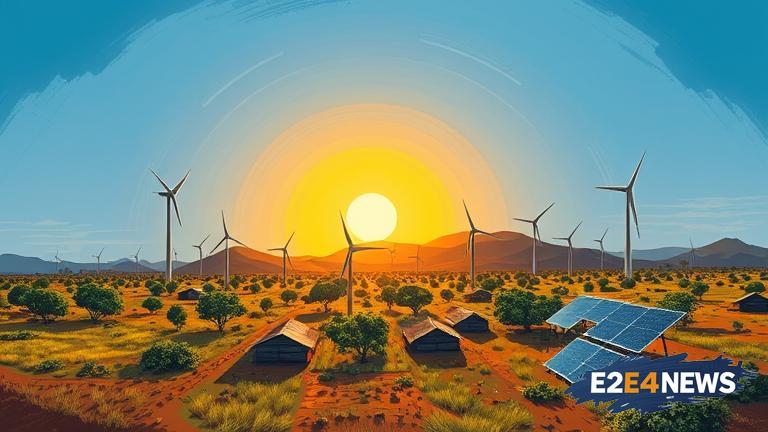The African continent is witnessing a significant shift towards renewable energy, driven by the need to address the pressing issues of energy access, climate change, and sustainable development. With many countries still struggling to provide reliable and affordable electricity to their citizens, renewable energy has emerged as a viable solution. Solar and wind power are leading the charge, with countries like South Africa, Egypt, and Morocco investing heavily in these sectors. The African Union’s ambitious goal of achieving 100% access to electricity by 2030 has further accelerated the adoption of renewable energy. Governments and private sector players are working together to develop and implement renewable energy projects, creating new opportunities for economic growth and job creation. The use of renewable energy is also expected to reduce greenhouse gas emissions, contributing to a cleaner and healthier environment. Moreover, the cost of renewable energy is decreasing, making it more competitive with fossil fuels. This trend is likely to continue, with the International Energy Agency (IEA) predicting that renewable energy will account for 60% of the world’s power generation by 2050. In addition to solar and wind power, other forms of renewable energy such as hydro, geothermal, and biomass are also being explored. The development of renewable energy infrastructure is also driving innovation, with new technologies and business models emerging to support the growth of the sector. For instance, pay-as-you-go solar home systems are becoming increasingly popular, allowing low-income households to access electricity for the first time. Furthermore, renewable energy is creating new opportunities for women and youth, who are often at the forefront of community-based renewable energy initiatives. The growth of renewable energy is also attracting international investment, with many countries and companies looking to tap into Africa’s vast renewable energy potential. However, despite the progress made, there are still significant challenges to be addressed, including the need for greater investment in grid infrastructure and energy storage. Moreover, the lack of policy and regulatory frameworks in some countries is hindering the development of renewable energy projects. To overcome these challenges, governments, private sector players, and civil society organizations must work together to create an enabling environment for renewable energy to thrive. This includes developing and implementing supportive policies, providing training and capacity-building programs, and promoting awareness and education about the benefits of renewable energy. In conclusion, Africa’s renewable energy revolution is gaining momentum, driven by the need for sustainable development, energy access, and climate action. With the right policies, investments, and partnerships in place, the continent can unlock its vast renewable energy potential, driving economic growth, reducing poverty, and creating a better future for all. The future of renewable energy in Africa looks bright, with many countries poised to become leaders in the global transition to a low-carbon economy. As the continent continues to grow and develop, it is likely that renewable energy will play an increasingly important role in shaping Africa’s energy future. The benefits of renewable energy are numerous, and it is up to governments, private sector players, and civil society organizations to work together to realize the full potential of this sector. By doing so, Africa can create a sustainable, equitable, and prosperous future for all its citizens.





